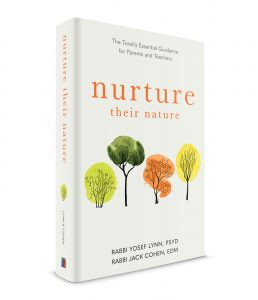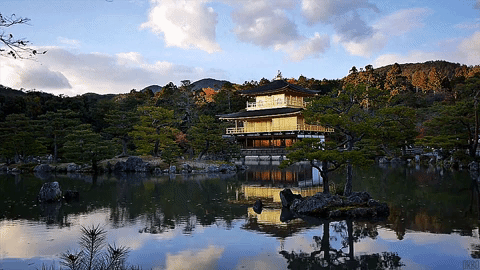Jewishness
The Craving for Manifest Spirituality
Aloha! 👋
This is Episode 8 of 12 of XL on the Soul. I hope you enjoy it!
If you want to go back to the very beginning, here are links to the Intro to the Series and Episode 1.
If you enjoy it could you please share it with family and friends?
If you have a question, please include it in a comment or email me directly (rabbijackcohen@gmail.com).
It may have already dawned on you that although the spiritual ideas in this series may resonate with you — and hopefully deeply — Judaism, as most of us know it, doesn’t seem to be very spiritual at all.
A quick glance reveals Judaism to be more dominated by laws and prescribed physical practices known as “mitzvot” than it is by pure, disembodied spirituality like meditation.
Even the central Jewish practice of the Amida, the silent prayer asks of us to stand on our feet, bow at the knees and waist as we say certain phrases, and articulate the words of the prayer with our lips — it’s not enough to merely think the words — they must be actually whispered.
We should note before we go further that meditation used to have a much larger role in ancient Jewish practice, and over the last thirty years has thankfully been making quite a comeback (here’s one example, and another of many).
This said, it’s hard to deny that Judaism is largely ACTION-oriented in contrast to the iconic, eyes-closed, lotus-position meditation we normally associate with Buddhism and modern Mindfulness.

Let’s rephrase this observation as a question:
Given all of our talk about the soul and spirituality, what are we to make of the overwhelming emphasis on the body and physical activity in Judaism?
Do YOU have a working theory based on YOUR experience of Judaism?
Your Soul is Searching for Your Body
To begin to answer this question, let’s first recognize that most of us tend to think of spirituality as removed from the world at large. Spirituality is generally pitted against physicality.
They really do seem to pull in opposite directions. Indeed, in most religions, spirituality is only seriously pursued in monasteries and convents, and retreats away from the hustle and bustle of society.
This, in many ways, makes a lot of sense. To get in touch with and stay in touch with your inner self you need calm, space, and limited distractions.
A big part of me personally would love to live in that peaceful monastery on the water pictured above, and yet, another part of me staunchly resists this temptation.
Is this wrong of me? Maybe I really should be retreating from my modern life…
Is spirituality — living a life of true depth and meaning — contradictory to the more mundane, physical demands of modern life???
A friend of mine, Rabbi Doniel Katz (today, one of the preeminent English speaking teachers of Jewish meditation through his Elevation Project) was born to Jewish parents in Australia, and grew up without much religious involvement.
As a young man, he was recommended by a friend to do something a bit crazy and attend a 7-day silent meditation retreat. He decided to go for it, and loved it — the meditation part of it at least. He would wake up, do some stretching, drink some water, eat a bit of rice, sit in lotus position, close his eyes, and meditate straight for 8 hours or so. Obviously it was hard at first, but when he got past the initial hump, it was unlike anything he’d ever experienced before.
What he didn’t like so much were the videos they would play in the evenings about Buddhist philosophy.1 Specifically, he was irked by the insistence that pleasure and beauty were to be avoided because they would pull him away from experiencing Nirvana.
Doniel decided to approach the Guru during the daily 30-minute slot for questions-and-answers. When it was his turn, he asked him the following question:
“I get that the pursuit of personal gain and physical pleasure are self-serving and ultimately lead to pain. I get this. But what’s wrong with beauty? What can be wrong with enjoying a serene sunset or a delicate flower?”
A look of recognition came over the Guru’s face. He looked Doniel in the eye and asked him:
“Are you Jewish?”
To which Doniel — shocked — nervously responded,
“No.”
“Ah…ok,” responded the Guru, slightly disappointed.
For the remaining few days, all Doniel could think of in his head was “Are you Jewish?”
It was driving him nuts.
Finally, at the end of the week, he decided he couldn’t head home without asking the Guru what his deal was, so he did.
The Guru looks up at him with a smile,
“You ARE Jewish, aren’t you?”
My friend responded begrudgingly,
“Yes, I am technically, but how did you know??”
This was the Guru’s response:
“In all my years doing this, I’ve found that there are two kinds of people:
The people who are really into all the meditation stuff, and
The people who feel that they can't really get into it.
Of the first kind of people, there are really two kinds of people:
The first kind embrace the whole kit-and-caboodle — the meditation and the whole philosophy on life. They can’t get enough of it.
But then there's another kind who can't help but be bothered by this ascetic view of the world, and insist — no matter what you tell them — that there must be truth, meaning, and purpose to be found out there in the physical everyday world. “In my experience,” continued the Guru, “ALL of these people are Jews.”
Doniel was dumbfounded. It rang so true, but it would take him years to grasp the depth of the Guru’s observation:
His soul was more interested in shining through his body than departing from it.
Our Inner Resistance to “Pure Spirituality”
Unless you, dear reader, are a monk, you may identify with Doniel in the story above. Although you may find the idea of a monkish existence, away from the world, to be attractive, you likely feel an instinctual resistance in your bones to abandoning the world to pursue your soul’s desire for spirituality.
The question we all should ask ourselves is:
Is this resistance coming from a good place or a bad one?
I’ll let you answer this question for yourself, but here are some suggestions as to why I’d venture to guess that you’re not a monk:
The first is that even though you can probably relate to the urge to turn around and run away from the complexity and heavy-lifting of “real life,” you’d probably also agree that this impulse comes from your inner child. When you face the world and confront the problems that life presents you, you feel responsible. You feel like an adult. And this feels good.
The second is that the physical world around us is simply magnificent. Any view of spirituality that sees the physical world as ultimately a barrier to meaning and connection is in a way offensive to the universe itself, dismissing it as some meaningless accident.
The third is the brute fact that your identity is most rooted in your innermost desires. Your sense of “I” is so wrapped up in what you want — not just what you want selfishly, but also what you want to create, contribute to the world, and do for others. It’s true: desire can and does lead to disappointment and frustration,2 but are you willing to lose yourself to achieve Nirvana?
Should you be?
Is there another way?
The Guru was right about the counterintuitive desire in the Jewish psyche to find truth, meaning purpose and even spirituality through the physical world, using our bodies.
Judaism is rich with philosophy, but it isn’t a philosophy.
It’s saturated with spirituality, but spirituality per se isn’t the focus.
So what is?
Our expedition into the depths of our souls continues…

Please don’t misunderstand our critiques of Buddhist philosophy. Buddhism is, in many ways, the most complementary “religion” to Judaism. The Zohar seems to attribute the gifts of meditation to the modern world to spiritual disciplines that were taught by Abraham our forefather to his children from his marriage to Ketura after Sarah’s death. We are only “picking on” Buddhism here because it is useful in order to bring the more elusive Jewish view of spirituality into higher contrast.






It's only getting better! Fascinating journey! Maybe that's why I like scuba diving ... reaching deep in the body and allowing the soul to come out. It's magical and it is "meditative". Gracias "primito". Alain